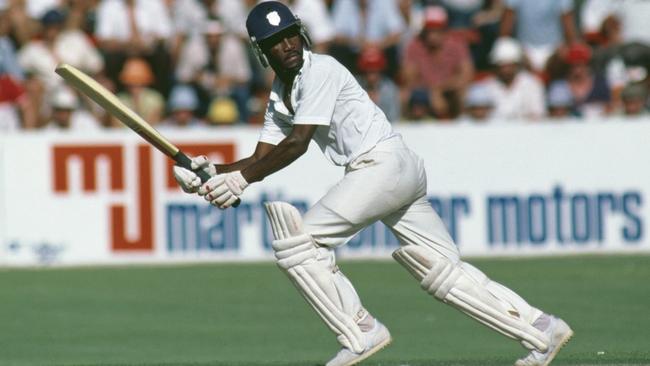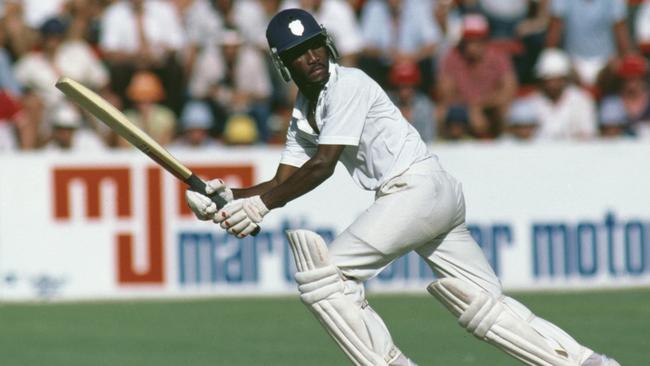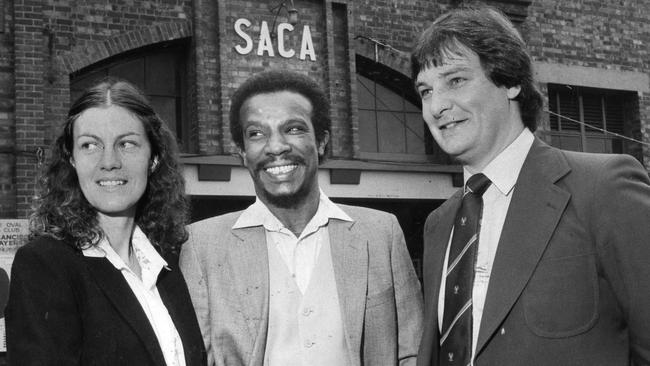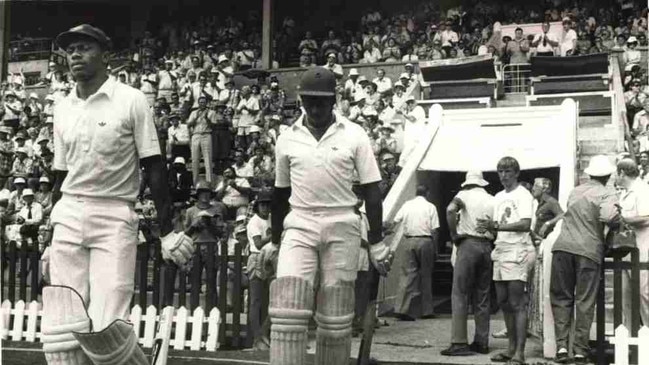Robert Craddock: How a group of West Indians became the most hated cricket team of all time after rebel tour
Australia’s Cape Town ball tamperers may have suffered for their sins but the anger they faced was nothing compared to the abuse showered upon a group of West Indians lured into a white man’s world.

Cricket
Don't miss out on the headlines from Cricket. Followed categories will be added to My News.
Unforgiven. Unforgotten. They were the most hated cricket team of all time yet also one of it’s most gripping case studies.
They became instant social outcasts, some turning to drugs, some turning to god, some living on the streets.
Some – not many – weathered the furious backlash and led relatively normal lives. But they all suffered deeply.
Watch sport on Kayo. Anywhere. Anytime. Just $25/month, cancel anytime. New to Kayo? Get your 14-day free trial & start streaming instantly >

They were the 20-man West Indian rebel cricket team who were given “honorary white man’’ status to play two tours against South Africa in the early 1980s with the big money they earnt seeming shallow compensation for life bans (later quashed) and ceaseless taunts for entering a regime which then treated blacks as second-class citizens.
Their story is endlessly fascinating and new light is shed on it this week with the release of an exceptionally well researched book by Sydney Daily Telegraph journalist Ashley Gray – The Unforgiven, Mercenaries or Missionaries? (Pitch Publishing, Amazon.com.au).
You can buy the book by clicking on this link.
Gray flew to the West Indies and the United States to interview all surviving players or their families and found batsman Herbert Chang spending his day wandering up and down Fourth Street in a ghetto in Kingston, Jamaica, soothed by antipsychotic drugs he takes twice a day.
Former classy wicketkeeper David Murray, the one time choirboy, son of West Indian batting great Sir Everton Weekes and the former husband of an Australian wife, had serious drug problems as far back as the mid-1970s during an Australian tour. Gray found him selling dope on tourist beaches in Barbados where he admitted “I f----- up.’’
Cocaine addict Richard Austin, who died in 2015 a “shoeless street beggar’’ according to Gray after being once signed by Kerry Packer, was another tragic tale of a player tormented in his homeland for “selling his black soul’’ to South Africa’s now defunct apartheid regime.
The tour captain, Lawrence Rowe, fled to Florida more than 35 years ago, fearful of the backlash in Jamaica where his legendary status only made people more angry that he deserted his country. It did not help that he initially denied he was joining the tour then suddenly he was leading it.

Rowe is one of nine members of the touring party to seek refuge outside their home nations.
Iconic West Indian names led the chorus of protest with Viv Richards saying he would rather die than lay down his dignity and Rowe’s business partner and fast bowling ace, Michael Holding, providing the most caustic insult of all, “if they were offered enough they would probably agree to wear chains.’’
Rowe, a freakish talent with extraordinary timing and fluency, is photographed on the book’s cover shaking hands with South African captain Peter Kirsten but his earnest expression says much about the nervous, conflicted figure he was at that time, though his team drew the first series and won the second the following summer.
The players were outcasts in their Caribbean homelands but treated like missionary-style heroes in mainstream South Africa, selling out every match.
Some people now believe their true status lies somewhere in between the two extremes, that many of them were simply financially impoverished souls who could not resist the big money, even though it sentenced them to a life of turmoil.
The naivety of some of the players was illustrated by an anecdote in the book where a player, after returning from the tour, was asked what he thought of the still imprisoned Nelson Mandela and responded “I can’t remember playing him.’’

The atmosphere of the tour was as double-edged as any tour could be, the joy of local crowds a contrast to the endless hostility back home.
There are stories of players landing from the airport at a ritzy hotel and a black porter looking at them as if to say “what are you doing here?’’
It was a question many of them still struggle to answer.
GOOD: Cricket is game enhanced by great books and Ashley Gray’s The Unforgiven is an excellent dive into one of the most intriguing stories in the sporting world.
BAD: Josh Addo-Carr contesting his $1000 fine for not adhering to social distancing laws during his controversial farm visit. How do you say “sorry from the bottom of my heart’’ and then protest your innocence?
UGLY: The bunfight which awaits cricket when the world comes up for air after the coronavirus. If you think the calendar is crowded now wait until India try and shoehorn the IPL in later in the year and postponed series from around the globe are jostling with each other. It will take a genius and a mathematician to solve it.
Originally published as Robert Craddock: How a group of West Indians became the most hated cricket team of all time after rebel tour

